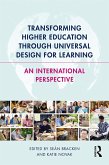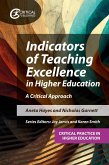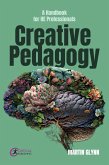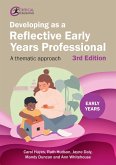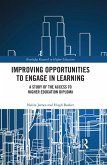This book delves into the underpinning principles of Universal Design for Learning (UDL) which is all about delivering an inclusive teaching and learning experience from the start rather than adapting existing programmes to new student needs.
As part of the Critical Practice in Higher Education series, this book focuses on the principles of UDL and how they should underpin thinking in embedding inclusive practice. When the Covid-19 lockdown was in full force, university staff were attempting to move learning rapidly online and this involved embedding inclusive practice at speed. This included considering curriculum this momentum which pushed aspects of the UDL agenda along out of necessity.
Ultimately, this book translates the principle of UDL into research-informed inclusive practice. It focuses on theory and research which looks at UDL intersectionally and from the perspectives of various marginalised groups including, but not limited to, categories protected by the Equality Act 2010. Readers are continually tasked to ask themselves whether their practice is inclusive, to consider why inclusion is important and relate this thinking to notions of social justice in higher education. It provides a critically reflective space where readers are invited to consider a more nuanced understanding of teaching and learning which celebrates and accommodates diversity.
As part of the Critical Practice in Higher Education series, this book focuses on the principles of UDL and how they should underpin thinking in embedding inclusive practice. When the Covid-19 lockdown was in full force, university staff were attempting to move learning rapidly online and this involved embedding inclusive practice at speed. This included considering curriculum this momentum which pushed aspects of the UDL agenda along out of necessity.
Ultimately, this book translates the principle of UDL into research-informed inclusive practice. It focuses on theory and research which looks at UDL intersectionally and from the perspectives of various marginalised groups including, but not limited to, categories protected by the Equality Act 2010. Readers are continually tasked to ask themselves whether their practice is inclusive, to consider why inclusion is important and relate this thinking to notions of social justice in higher education. It provides a critically reflective space where readers are invited to consider a more nuanced understanding of teaching and learning which celebrates and accommodates diversity.
Dieser Download kann aus rechtlichen Gründen nur mit Rechnungsadresse in A, D ausgeliefert werden.



